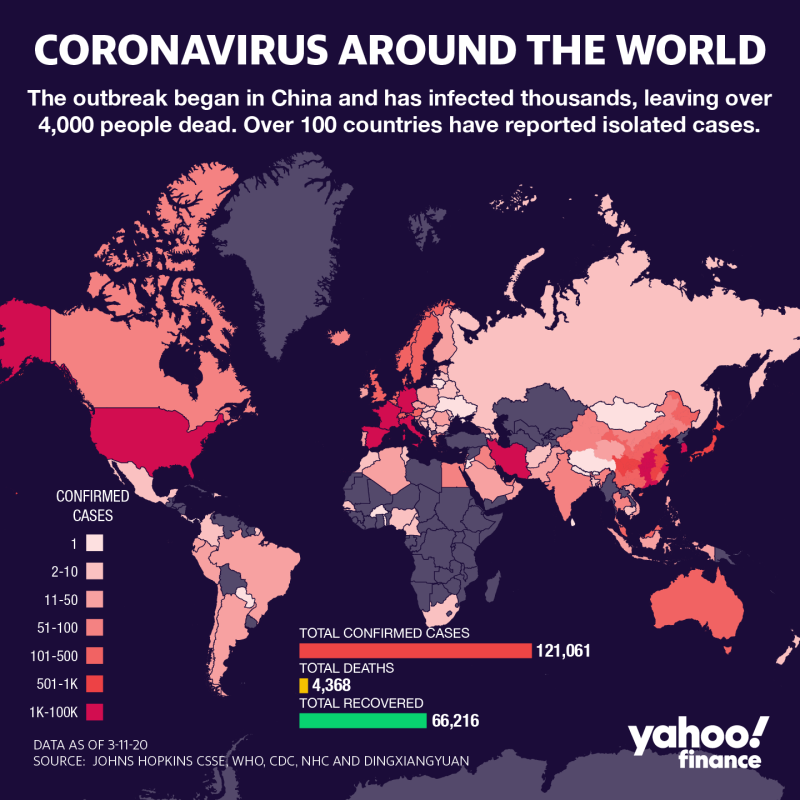Coronavirus threatens the jobs of these 15 million US workers
The types of extreme measures that could help contain the coronavirus outbreak in the U.S. — cancelling conferences and festivals, restricting travel, working from home — are also the types of actions that could throw the U.S. economy into a recession. This dilemma is currently plaguing President Trump’s administration, Congress, investors, and Federal Reserve officials as they consider their options.
Italy’s Prime Minister Giuseppe Conte has instituted a quarantine for the entire nation. While that may help contain the coronavirus, such measures would hit the U.S. economy and by extension drag down the global economy.
New research from Deutsche Bank indicates precisely how many Americans are at risk of losing their jobs due to the coronavirus outbreak’s impact on the U.S. economy — 15 million.

“A significant part of the 15 million would be at risk of losing their jobs,” said Deutsche Bank’s chief economist Torsten Slok. “We’ve never seen non-farm payrolls fall by 15 million from one month to another, but this is like a gradual erosion.”
Those 15 million workers consist mostly of independent contractors, on-call workers, and temp help agency workers in industries ranging from health care to law. They represent roughly 10% of the U.S. labor force, says Slok. “Every time you have a slowdown in the economy, temp workers are the first ones to get hit,” he said.

As meetings are cancelled, travel declines and people forgo social activities, like going out to restaurants, movie theaters, gyms, and sporting events, these jobs are vulnerable to a sudden drop in demand.
U.S. may already be in a recession
Slok warns that the reduction in economic activity we’re seeing today in the travel industry is already impacting the U.S. economy. “This is what we’re worrying about, and this is what I would expect. If you begin to see initial jobless unemployment claims begin to go up, that would be a serious risk,” he said. “Today is only March and remember… January and February were not too bad; all this is only really playing out here in the beginning of March.”

The January and February jobs reports indicate that 273,000 jobs were added to payrolls each month. The next jobs report, which coincides with the escalation in coronavirus cases, comes out on April 3. “Chances of a recession are very high at the moment… we may already be in one. It becomes a matter of when the shock is hitting,” Slok said.
In a note to clients this week Goldman Sachs strategist David Kostin said: “The U.S. economy could slip into a recession if the coronavirus contagion lasts for an extended period of time.”
Slok warned that if a significant decline in economic activity happens throughout March, the U.S. could see negative growth in Q1 2020. Two quarters of negative economic growth as measured by GDP would mean the U.S. is officially in a recession.
On Wednesday, the World Health Organization formally declared the new coronavirus a worldwide pandemic.
Editor’s note: This article originally ran on March 10 and was updated on March 11 after the World Health Organization declared COVID-19 a pandemic.
More from Sibile:
Private plane travel demand rises amid coronavirus outbreak
Modell’s CEO: Without tariffs, ‘economy would have been a disaster’
Tapestry CEO Jide Zeitlin talks diversity: ‘Talent comes in many forms’
How a publishing company started by a former slave has lasted for 120 years
Sallie Krawcheck tells women: ‘Sometimes it’s not you, it’s him’
